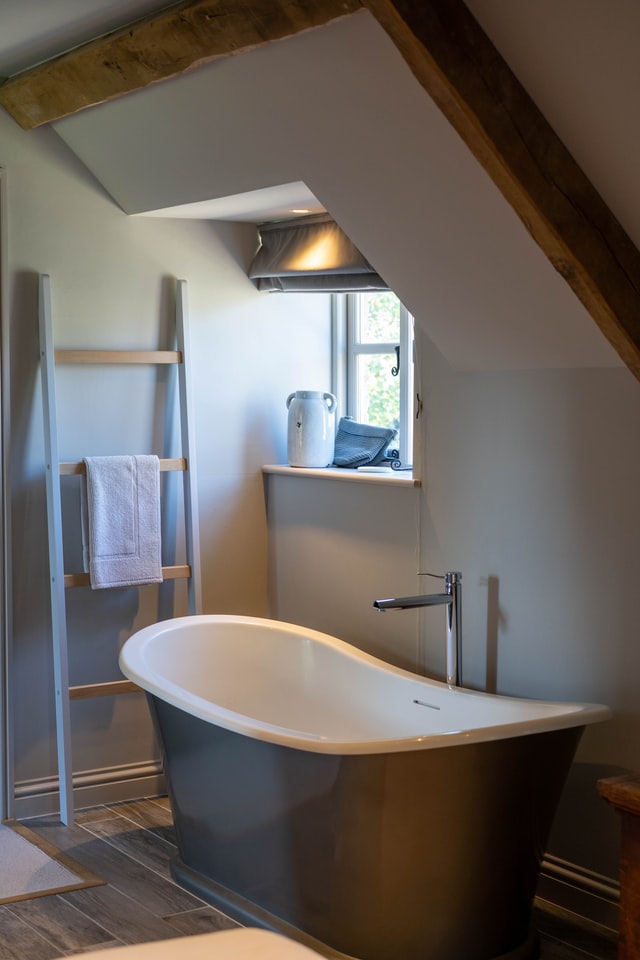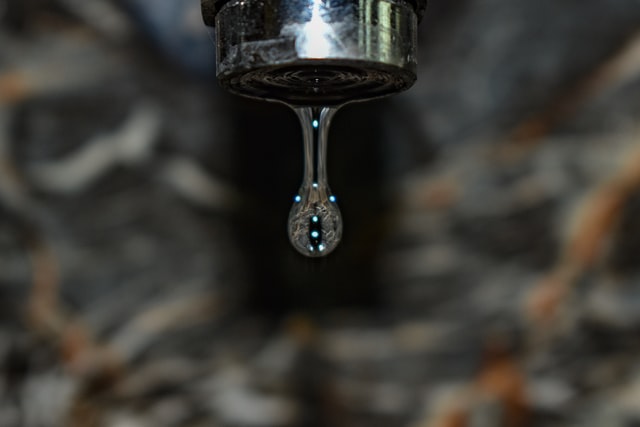Switching to eco-friendly Air Conditioning & plumbing
Eco-friendly plumbing and Air conditioning is the way to go for most property owners building or renovating a new home. Eco-friendly plumbing after all does not only offer an environmentally friendly alternative to traditional plumbing equipment, it also promises to help curb water consumption of the whole household.

Eco Friendly HVAC Systems
As environmental awareness grows, more homeowners are seeking eco-friendly solutions for their HVAC systems. Eco-friendly HVAC options not only reduce environmental impact but also contribute to energy savings and long-term sustainability. In this article, we’ll explore three eco-friendly HVAC solutions for residential use, helping homeowners make informed choices that prioritize both comfort and environmental responsibility.
- Energy-Efficient HVAC Systems: Upgrading to energy-efficient HVAC systems is one of the most effective ways to reduce environmental impact and lower energy consumption in residential buildings. Modern energy-efficient systems, such as high-efficiency air conditioners, heat pumps, and furnaces, utilize advanced technologies to optimize performance while minimizing energy use.
Features such as variable-speed motors, programmable thermostats, and zoning systems allow for precise control over heating and cooling, reducing energy waste and improving overall efficiency. Additionally, energy-efficient HVAC systems often qualify for rebates and incentives from utility companies and government agencies, making them a cost-effective choice for homeowners.
- Smart Thermostats and Home Automation: Smart thermostats and home automation systems offer homeowners greater control and flexibility over their HVAC systems, enabling them to optimize energy usage and reduce environmental impact. Smart thermostats can learn household patterns and preferences, automatically adjusting temperature settings for maximum comfort and efficiency.
Furthermore, home automation systems allow for integration with other smart devices, such as lighting and blinds, to coordinate energy-saving measures throughout the home. By leveraging technology and data analytics, homeowners can minimize energy waste and reduce their carbon footprint without sacrificing comfort.
- Geothermal Heating and Cooling: Geothermal heating and cooling systems harness the natural energy stored beneath the Earth’s surface to provide efficient and sustainable heating and cooling for residential buildings. Unlike conventional HVAC systems that rely on fossil fuels or electricity, geothermal systems use the stable temperature of the ground to exchange heat with the indoor air.
Renewable Geothermal HVAC Energy
By tapping into renewable geothermal energy, homeowners can significantly reduce their reliance on traditional energy sources and lower greenhouse gas emissions associated with heating and cooling. While geothermal systems require a significant upfront investment, they offer long-term savings on energy bills and provide a greener alternative to conventional HVAC solutions.
Eco-friendly HVAC solutions offer homeowners an opportunity to reduce their environmental footprint while enjoying comfortable indoor environments. Whether through energy-efficient systems, smart thermostats, or geothermal technology, embracing eco-friendly HVAC options benefits both the planet and the household budget in the long run.
Modern technology has paved the way for eco-friendlier plumbing fixtures and systems. Check out a plumbing supply or home builder’s store and one will realize that eco-friendly toilets, faucets, showers, water heaters are among the many choices available for household and commercial consumers.
Eco Friendly Plumbing
Conventional toilets usually use three gallons of water every flushing. Low-flow toilets on the other hand use less than this due to their more powerful flushing mechanism and smaller cisterns. Homeowners will benefit a lot from choosing toilets that are low-flow or at least have a dual flushing mechanism. Dual flush toilets use less water to flush when the owner chooses urine flush and uses a bit more to flush human waste. This way, households get to save drastically on water consumption.
More efficient faucets and showerheads
Faucets and showerheads are more efficient nowadays, with manufacturers opting to come up with lower flow higher pressure faucets and showers. These new technology showers mimic the same strong water supply level without wasting too much water.
Going for automated faucets that use sensors, and pedal-operated faucets also help much in lowering water use especially in commercial settings. However, larger households can likewise benefit from this type of faucets especially when there are younger children who are likely to play with faucets.
Leak alarms
Leak alarms are also helpful especially in curbing wastage of water, as well as in preventing water damage. By installing leak alarms, homeowners get to know whenever there are leaks within the home so that they could immediately seek professional.
Consider greywater systems
Greywater systems are a more systemic way of recycling water at home. This means that used water that is clean enough can be pooled, and then used to water plants and the lawn. A rainwater harvesting system also works the same way.
Beyond plumbing fixtures
Appliances that make use of water, also come with water-saving features. For instance, washing machines, dryers, and dishwashers all come with water-efficient versions. If it is already time to upgrade the existing unit, homeowners should choose these eco-friendly versions not just to save on water utilization, but also to save on electrical consumption.
Commitment to lower water consumption
The use of eco-friendlier plumbing fixtures is best complemented with the commitment of every household member to utilize water wisely. Homeowners should seek every household member’s cooperation in lowering water consumption to save on costs and at the same time help save a finite environmental resource.
By asking everyone to use water wisely, like turning off faucets when not needed, taking shorter showers, and using less water in general, then everyone could pitch into the whole family’s decision to curb water consumption. Households with younger children should double up on the effort of educating younger household members about the value of saving water. In the end, everyone should stay conscious about how they utilize water so that they could do their part in lowering water usage.
Tips for a budget-friendly bathroom renovation
Bathroom renovations are a major remodeling endeavor for most homes. It is an opportunity for most families to have the bathroom they dream of – a space that is relaxing and highly functional and convenient to use at the same time.
Unfortunately, not all households have the same budgets to utilize for a bathroom renovation. Those who are constrained to remodel theirs usually have tight budgets to work on. Regardless of the budget, every homeowner should realize that it is still best to commission a professional plumber to carry out all the plumbing requirements of the bathroom renovation.

Budget-friendly bathroom remodeling
This article On Google will discuss several ways to carry out a bathroom remodeling project without going beyond a tight budget. There are actual ways to save on the various aspects of remodeling, and all it takes is careful planning and commitment to adhere to the given budget.
Realizing one’s vision and realistic budget is the first step in carrying out a budget-friendly bathroom renovation. The homeowner should find Guide to DIY inspiration and draw up the outcome that he aims for and get a professional quotation for it. Most local plumbing companies will be more than happy to help out in providing a cost estimate for a bathroom renovation project.
Just replace what needs to be replaced
Homeowners should stick with the plumbing fixtures that still work and still have good years of use. For instance, homeowners should refrain from replacing toilets, sinks, and tubs that are still in optimal condition. Instead, the renovation should just focus on key elements that could lend the area a new look, and make it more convenient to use and relaxing to be in whatever the objective of the renovation ends up to be.
Replace old and end of life fixtures
If the piping is outdated, then take the opportunity to replace bathroom plumbing during the renovation. Yes, it may entail costs but it is more costly and inconvenient to replace them only when they get busted or incur a significant leak. If the pipes of plumbing in the bathroom are no longer up to code, have the plumbing contractor replace them right away.
The same holds for faucets, toilets, tubs, showers, and sinks. Those that are already nearing their end of life, needs repair now and then, should get replaced already. In short, every significant plumbing work that might be needed this year and in the next should get done to save on costs and hassle.
Keep major plumbing where it is
It is best to keep major plumbing fixtures to their current location. Moving it around would mean moving drainage, pipes, and other plumbing contraptions to another location. This would require more time, more effort, more destruction, and more expense. So it is best to keep toilets, faucets, and drains in the same position they are, and just focus on other changes that could lend a new look to the bathroom. These include tile changes, paint, accessories, among other minor yet obvious design alterations.
